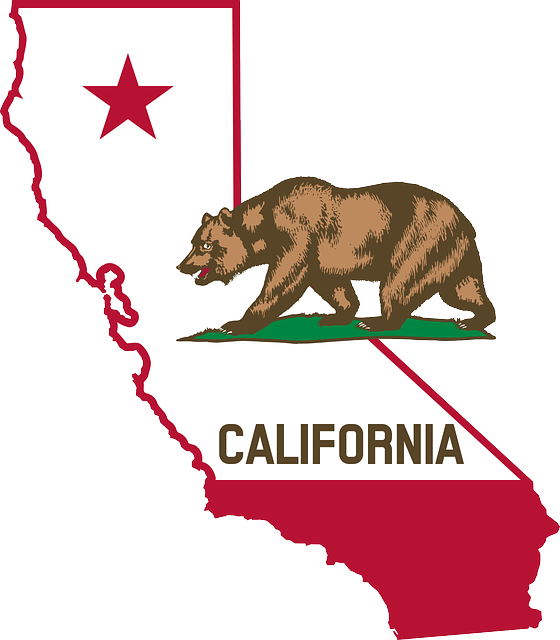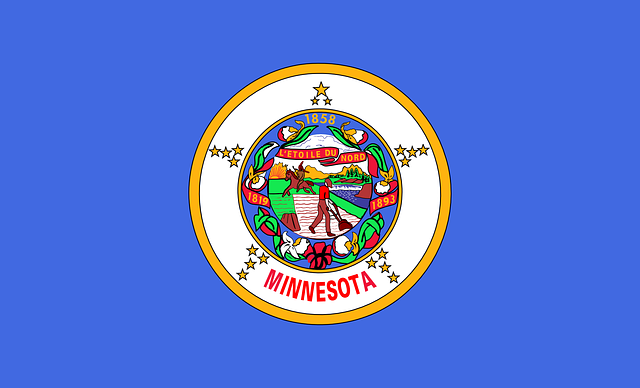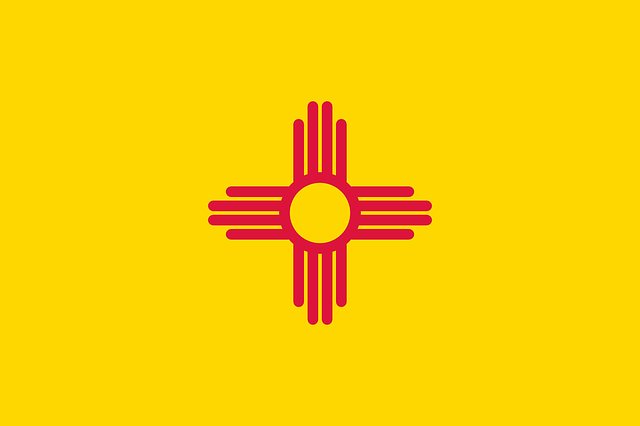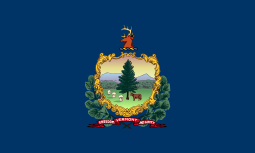9 States Make Free School Lunch Accessible to All Students
Steven Capasso • 09 Aug, 2023

9 States Make Free School Lunch Accessible to All Students
'
As the Covid-19 pandemic began to sweep across the nation, Congress made free school meals available to all children without concern for family income. However, this policy ended before the 2022-23 school year began.
Let’s look at how some states have decided to carry the torch and stick with the idea of making free lunches available to all students, now and in the future.
States Continuing Free Lunch
Though many states opted out of free lunches once the covid requirements expired, a few have taken steps in the opposite direction.
California, Colorado, Maine, Minnesota, New Mexico, and Vermont have all made free lunches a permanent part of their school systems.
Michigan has also recently put forth a bill that makes free lunch access available to all students in the state — and it’s poised for approval. Similarly, Nevada is aiming to make free lunch available to all students by the 2023-2024 school year.
These states are leading the way in solving food insecurity and hunger among young students. With such an important goal in mind, other states should consider following suit by making free meals available to all students.
How Covid-19 Impacted Our National School Lunch Program
In response to the Covid-19 pandemic, Congress took swift action to combat food insecurity among children by implementing a temporary policy that made free school meals accessible to students in every school district in the country, irrespective of their family's income.
This policy was a departure from the typical practice, where free or reduced-price benefits were provided based on family income thresholds. An application process determined eligibility for students to receive reduced price meals. Families who earn more money were expected to pay full rate, while those with greater need would receive free or reduced price meals. Reduced price benefits were available if your family size and income fell below a certain threshold, or you received government assistance like Special Supplemental Nutrition Program (SNAP) or Special Supplemental Nutrition Program for Women, Infants, and Children (WIC), or if the family relied on social security benefits.
Through a temporary measure, Congress aimed to ensure that no child went hungry during a time of national crisis, recognizing the integral role school meals play in supporting the overall health and well-being of students.
However, as the pandemic has evolved, so too has the policy landscape, with the Congressional mandate for universal free lunches ending before the 2022-23 school year began.
States with Permanent Free Breakfast or Lunch Policies
California

California(1) provides free meals to all students, regardless of income, under the California Universal Meals program. Though unsuccessful, the state aimed high to end child hunger and pursued the School Meals For All program (Senate Bill 364), which would have provided free lunch even when schools were closed.
Colorado

Colorado(2) offers universal free lunch for all public school students with no income qualifications under the Healthy Meals for All program (House Bill 22-1414). This program was funded by limiting tax deductions of individuals earning over $300,000 annually.
Maine

Recognizing that some school districts served 45% more meals when they were available for free due to the pandemic, Maine(3) saw the need to feed their students. As a result, Maine passed a law in April 2022 to provide free breakfast and lunch to all students, turning the temporary pandemic policy into a permanent one. (LD 1679)
Minnesota

Minnesota(4) has also extended free lunches for all students, irrespective of family income. The "Free School Meals for Kids" program was signed into law in March 2023 to provide additional state funding to ensure every student can access a nutritious school meal.
New Mexico

In March 2023, New Mexico(5) enacted legislation that guarantees all public school students will receive free breakfast and lunch. Senate Bill 4 sets aside around $30 million for school lunches, aiming to fight childhood hunger and reduce the stigma around receiving free meals.
Vermont

As of June 2023, all public school students in Vermont(6) are eligible for free school meals. While Governor Philip Scott expressed regret about raising property taxes to allow children to eat food, public pressure ensured that solving children's hunger took precedence.
States Moving Toward Permanent Free Lunch
Michigan

Michigan(7) is poised to become the latest state to offer free lunches to all children. The bill (SB 173) will cover lunch for all students in public schools.
Nevada
 In May 2023, Nevada(8) introduced a bill that will make free breakfast and lunch available to all students in the state. The legislation (AB319) seeks $43 million to fund the program.
In May 2023, Nevada(8) introduced a bill that will make free breakfast and lunch available to all students in the state. The legislation (AB319) seeks $43 million to fund the program.
Considerations of States Dropping School Meal Benefits
While these nine states have chosen to continue offering free lunches, other states have chosen to revert back to their previous policies when the federal mandate ended. Here is an overview of some of those states:
· Texas: The Texas(9) state's education department has returned to using the Federal Income Eligibility Guidelines to determine who qualifies for free or reduced-price school meals. Free lunch is based on household income or enrollment in a government program like the Special Supplemental Nutrition Program (SNAP) or a federally-funded Head Start Program.
· Florida: Florida(10) schools have returned to determining eligibility for free lunches based on family income, ending universal free lunches. Like other states, students who receive SNAP are automatically eligible for free lunch.
· New York: New York(11) state's policy returned to free and reduced-price school meals for students from income-qualifying households. New York City School District is a notable exception, as students attending and learning in person are provided free breakfast and lunch.
· New Hampshire: School districts and parents advocate for free lunch for New Hampshire(12) students, but the effort has been unsuccessful thus far. For the time being, free lunch for NH students is based on family income.
Each of these states, and others, made the decision to return to income-based eligibility criteria for free school meals, ending the policy of universal free lunches that was in place during the pandemic.
Motivations and Benefits of Free Meals at School
Making free school lunches available to all students is not only beneficial for the children, but it also has a positive impact on their families and schools.
Benefits of Free School Meals for Students:
Create a bulleted list with links to high authority websites that display the benefits of free lunches for students.
· The American Academy of Pediatrics notes that 27% of adolescents skip breakfast before school, and credits a healthy breakfast with healthier body weight, improved memory, attention, test scores and overall performance,
· The National Education Association advocates for free meals in schools and stands confident that access to nutrition will improv student behavior and academic performance.
· The Food Research & Action Center (FRAC) provides an in-depth analysis of the positive impacts of the Community Eligibility Provision on school meal participation.
Implications for Food Security and Student Welfare
The provision of free school meals directly addresses the problem of child food insecurity, which has far-reaching implications for student welfare. According to the USDA, food insecurity impacts 12.5% of households, placing over 5 million children in food-insecure households. By ensuring that every student has access to at least one nutritious meal per day, school lunches act as a critical safety net, mitigating the risk of hunger among children from low-income families.
Food insecurity does more than just cause physical discomfort; it can have profound effects on a child's cognitive development and academic performance. Harvard University's Center on the Developing Child indicates that chronic undernutrition in early childhood can lead to cognitive deficits that may be irreversible. Implementing universal free school lunch policies could be a significant step in combating these developmental setbacks.
Offering free meals to all students, regardless of their economic background, eliminates any stigma associated with receiving free or discounted lunches under income-based schemes. This fosters a more inclusive school environment where all children can enjoy their meals without judgment or embarrassment.
The impacts of school lunch policies on student welfare extend beyond the cafeteria, contributing to the overall morale, sense of belonging, and emotional health of students.
Meaningful Secondary Benefits of Free Lunch Programs
Seven states have enacted free lunch policies, with at least two more committed to joining them. The states mentioned above have taken a positive step towards addressing child food insecurity and student welfare. Other states should consider emulating their example, as universal free school lunch policies are an effective way to support disadvantaged children while promoting inclusivity within learning environments. Free lunch programs would not only benefit children but could also create economic opportunities for local businesses by increasing the demand for food products.
In addition, providing free lunches to all students requires a greater investment of public funds, which may create jobs in the food service sector. This is especially relevant given the current economic landscape caused by the Covid-19 pandemic and the looming question of how AI will affect jobs. Universal free school lunch policies have unarguable potential benefits for both children and communities alike.
Conclusion
Free school lunches are instrumental in addressing child food insecurity and promoting student welfare. The states mentioned above have taken the necessary steps to ensure that every public school student has access to nutritious meals. Other states should take note of this development, as universal free lunch policies could create jobs and economic opportunities while making a substantial difference in children's lives.
Implementing state-level policies that guarantee free school meals to all students is an important step in the fight against child hunger and a powerful gesture of support for vulnerable children. Free lunches are not merely a cost-saving measure but a commitment from states to improve student welfare and provide resources necessary for academic success.
1. California: https://www.cde.ca.gov/ls/nu/sn/cauniversalmeals.asp
2. Colorado: https://www.cde.state.co.us/nutrition/healthy-school-meals-for-all-program
3. Maine: https://www.maine.gov/doe/schools/nutrition/programs/nslp
4. Minnesota: https://education.mn.gov/MDE/dse/FNS/SNP/free/
5. New Mexico: https://webnew.ped.state.nm.us/bureaus/student-success-wellness/nutrition/
6. Vermont: https://education.vermont.gov/student-support/nutrition/school-meals/free-and-reduced-meals
7. Michigan: https://www.michigan.gov/whitmer/news/press-releases/2023/07/20/whitmer-signs-education-budget-providing-free-school-meals_steps-toward-free-prek-for-all
8. Nevada: https://nutrition.nv.gov/Programs/National_School_Lunch_Program_(NSLP)/
9. Texas: https://tea.texas.gov/academics/learning-support-and-programs/technology-planning/e-rate/e-rate-national-school-lunch-program-eligibility-data
10. Florida: https://www.fdacs.gov/Food-Nutrition/Nutrition-Programs/National-School-Lunch-Program/Family-Application-for-Free-and-Reduced-Price-School-Meals
11. New York: https://www.cn.nysed.gov/content/paid-lunch-equity-ple
12. New Hampshire: https://www.education.nh.gov/who-we-are/division-of-learner-support/bureau-of-student-wellness/national-school-lunch-program





